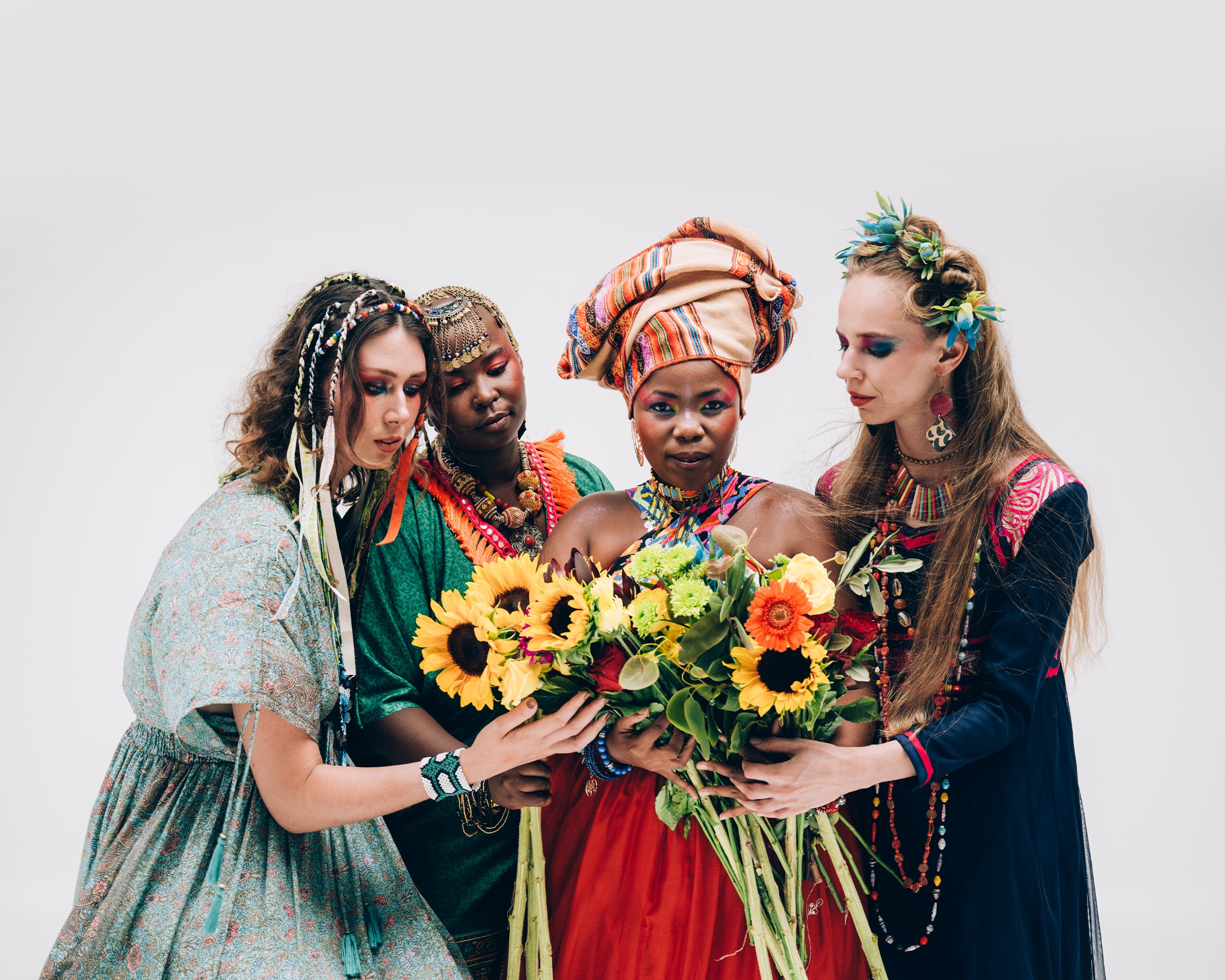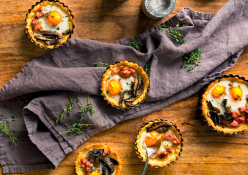It’s the ‘girl band’ South Africa (and the world) didn’t know it needed. Zolani Mahola has united female musicians to make “medicine music” that will soothe the soul of a nation – but first, their own.
It was one of those windy days in Cape Town. People hanging on poles. Gusts lifting you skyward. Lots of ‘Sjoe’s when you finally make it indoors. And that was the kind of day The Feminine Force faced when they stepped out onto the bare concrete of the V&A Waterfront’s amphitheatre stage. The sky darkened over the few seated onlookers, and a marimba hurtled across the stage. Somewhere, there was rugby on, too.
Then the five on-stage women started strumming, drumming and singing together, and crowds were drawn out of the mall and into their aura. Windswept and wonderous, many told the band afterwards, “That was just what I needed, thank you”. Every band member felt the same.

For Zolani Mahola, that performance sums up the purpose as well as the power of her new musical collective, entitled The Feminine Force. After 17 years in Freshlyground, Zolani’s new project is an ever-changing exploration of what happens when talented South African female musicians click, and then set out to create music together.
But that’s where the intentionality stops: Zolani’s vision is for the group to expand, contract, invent and perform according to what feels natural and needed in that particular moment. It will always be a work in progress – and they intend to keep it that way.
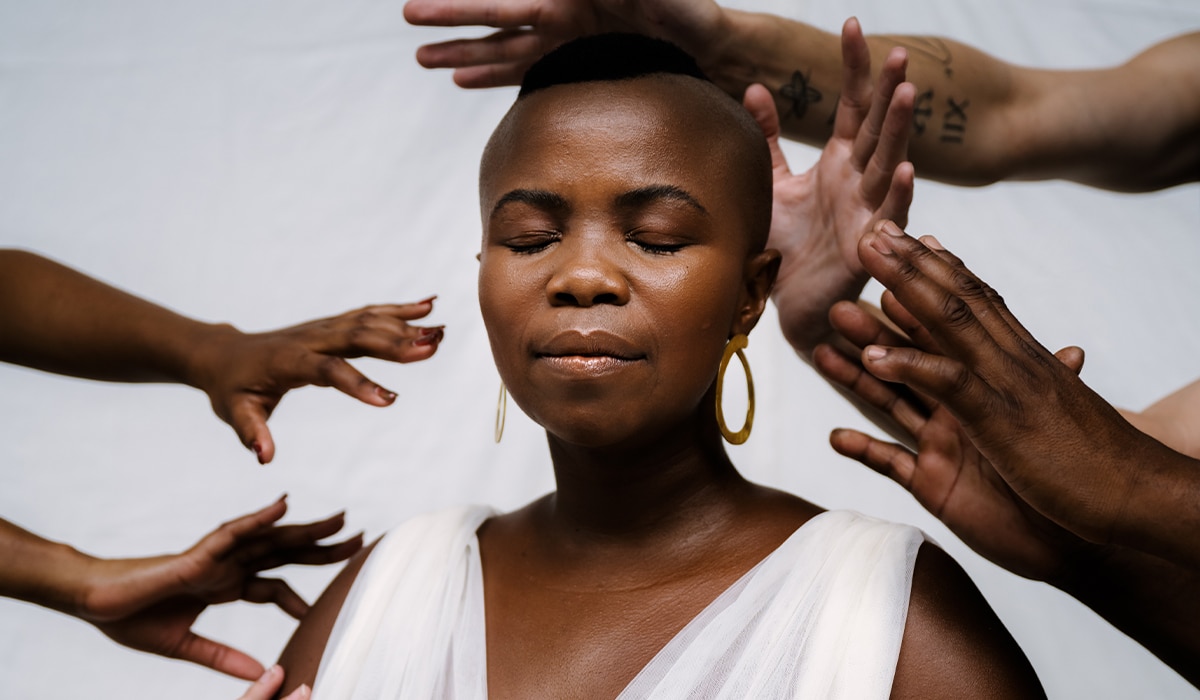
An organic origin
The Feminine Force grew organically from Zolani’s search for her own sound. In 2019, she decided to step out of the collective voice of Freshlyground to uncover what her own might sound like.
“I didn’t feel that I had lost my voice, but I was curious to discover what I would sound like outside of the band after so long. In the time leading up to my last day with them, I wrote and put on a play at the Baxter Theatre in Cape Town called The One Who Sings. That was the name given to me by people on the street over the last decade – they’d pass me and say ‘Ah, lowo uculayo, the one who sings’. The play was a retrospective on my life and the stories that had created who I was up to that point, set against and mirroring what was happening in the country throughout that time,” Zolani shares.
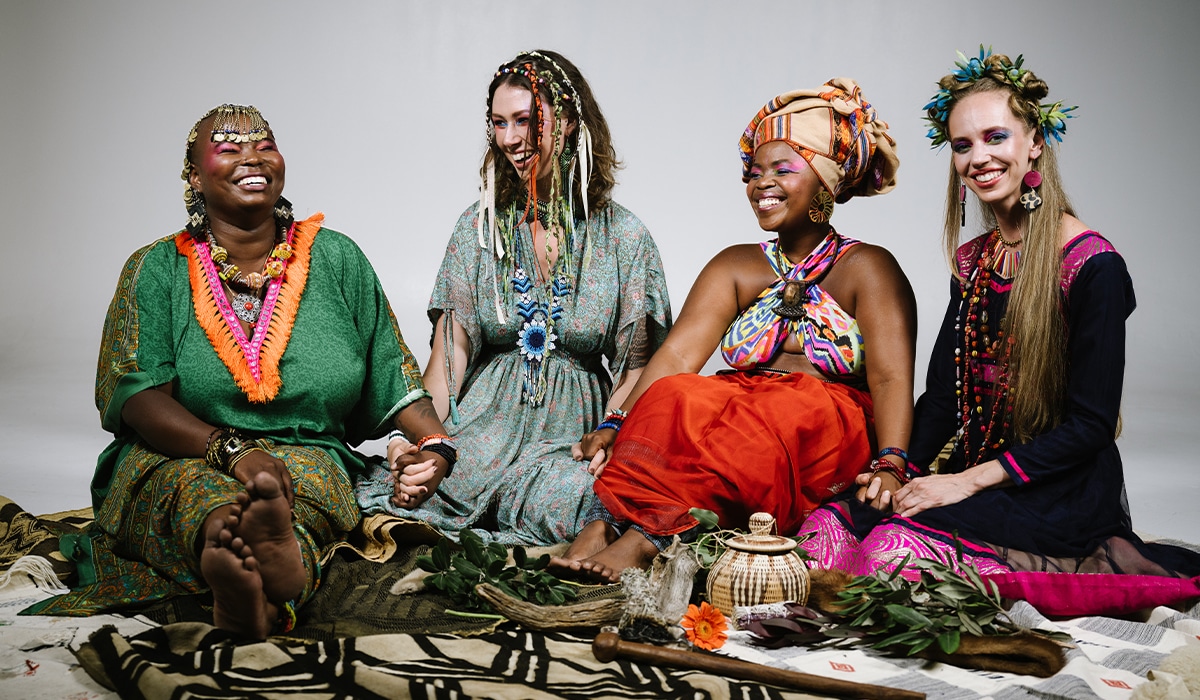
A “new lease on life” drove a refreshed creativity and wondering, leading her to contemplate: What would it be like to play with only women? “The idea was sparked from my investigation of the idea of Divine Femininity and healing my own sister wounds,” she says. “I was yearning to find comfort and strength in the company of and in co-creation with my fellow sisters.” So she gathered some female musicians and put on a show of songs she had written as a child and young adult. This was the first inkling of what would later become The Feminine Force.
Although the 2020 lockdown put an end to these budding female-focused performances, it also gave Zolani the opportunity to explore the inner voice she was longing to define. The result was The One Who Sings, Zolani’s solo project, which weaves stories of the sacredness of childhood, nature and humanity into paredback soulful music.
During the creation of her album Thetha Mama, Zolani collaborated with multi-instrumentalist Sky Dladla and bassist Sarah Blake. Over the next two years, she met a host of female singers and instrumentalists with whom she clicked, and invited them to play with her. The cast of this informal collective changed over the years until the end of 2022, when Zolani felt, “This is it – this is what we’ve been working towards”. The Feminine Force had arrived.
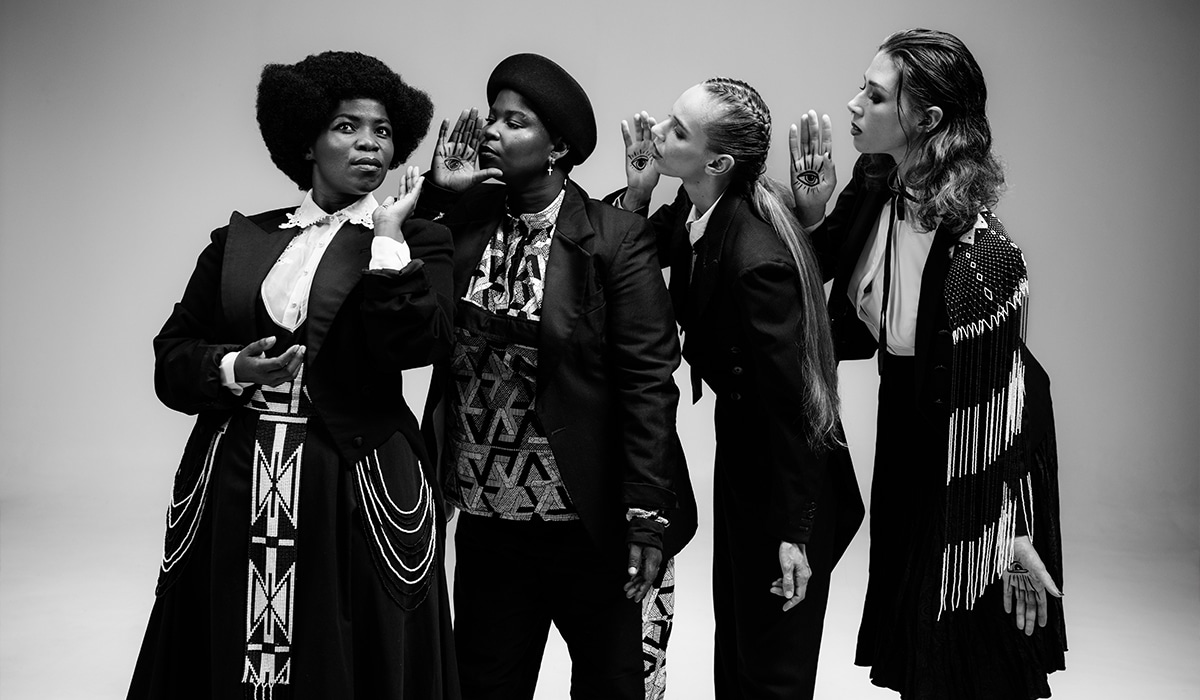
Birth story
“When I picture The Feminine Force, I see women singing at a river in harmony,” Zolani shares with a dreamy smile. “It’s about taking up the space to sing together, grieve together, laugh together and cry together. We all put our hearts into it and the feeling is potent. It’s fierce. It’s rousing, and it speaks to people.”
Zolani’s vision is to keep the collective flexible, so that it continues evolving and remains a living thing. Coming together to create or perform their music is fluid; there can be five of them or 20, and each musician continues to be part of other bands and projects. Each person plays a number of instruments, and sings.

Take Sky Dladla, who – when she isn’t giving marimba lessons, making instruments or tuning marimbas – can be found performing around the world with any number of indigenous African instruments. The collective’s bassist and vocalist, Cal Thompson, also plays the guitar and piano. Plus, she’s part of indie pop band Amor Amor, and is the creative director of The Mobile Music Academy.
As Zolani says, each woman brings her own expertise and voice to the group. Other current members of the band are Arianna Carini, Ntombe Halam, Chante Phillips, Genevieve Lee and Tracey Johannes. “We laugh a lot during practice and on stage. I want them – especially the younger musicians – to see that you can be excellent at what you do and still have a good time,” Zolani says.
A good feeling
For Sky, The Feminine Force is an energy that can only be felt, not fully described. “I was blown away and honoured when Zolani approached me to join the group,” she says. “I had grown up listening to Freshlyground, so I thought I was dreaming! There were no auditions for The Feminine Force – we were all drawn to Zolani in some way at different times. So there is a special energy because it’s a group of people with good hearts, good music and good messages to share.”
Sky adds that she’s learnt more about music and the industry in the last five years of working with Zolani than she has in her entire career. “Zolani is so patient and loving. She gives us all the chance to be free on stage and in the music. She has been in the industry a long time and she’s shared all of that knowledge with us. It’s been a lifechanging experience,” she says.

The musicians have so much love and respect for one another, and want that energy to reflect in the music and their audiences. “We want to show that women can do so many things, even if they are different, and that it’s our time to shine right now,” Sky says. “We have that energy in us and we believe that it lies in others, too.” Cal shares Sky’s belief that the collective is a feeling and not just a band. Zolani’s invitation to join a collective of women creating “medicine music” intrigued Cal.
“I wanted to know what that would mean, and it aligned exactly with what I want to achieve with music,” she recalls. “My purpose is to heal and help people through music, and The Feminine Force does that. It has also healed me – I’ve been able to work through a lot of my own trauma when we create songs together. I find myself playing the songs even when I’m on my own, because they soothe me.”
A clear vision
All three women, so vastly different in their experiences and expertise, have one central vision for The Feminine Force: that it remains a living, growing thing. “I really dream about taking it as far as we can to reach as many people as we can,” says Cal, while Sky hopes to look back in 20 years and marvel at how they’ve grown and what they’ve achieved. “I hope we can play bigger venues and take our music to the rest of Africa,” she shares. “I want to travel and show that women can do this. I want them to go forward with their dreams.”
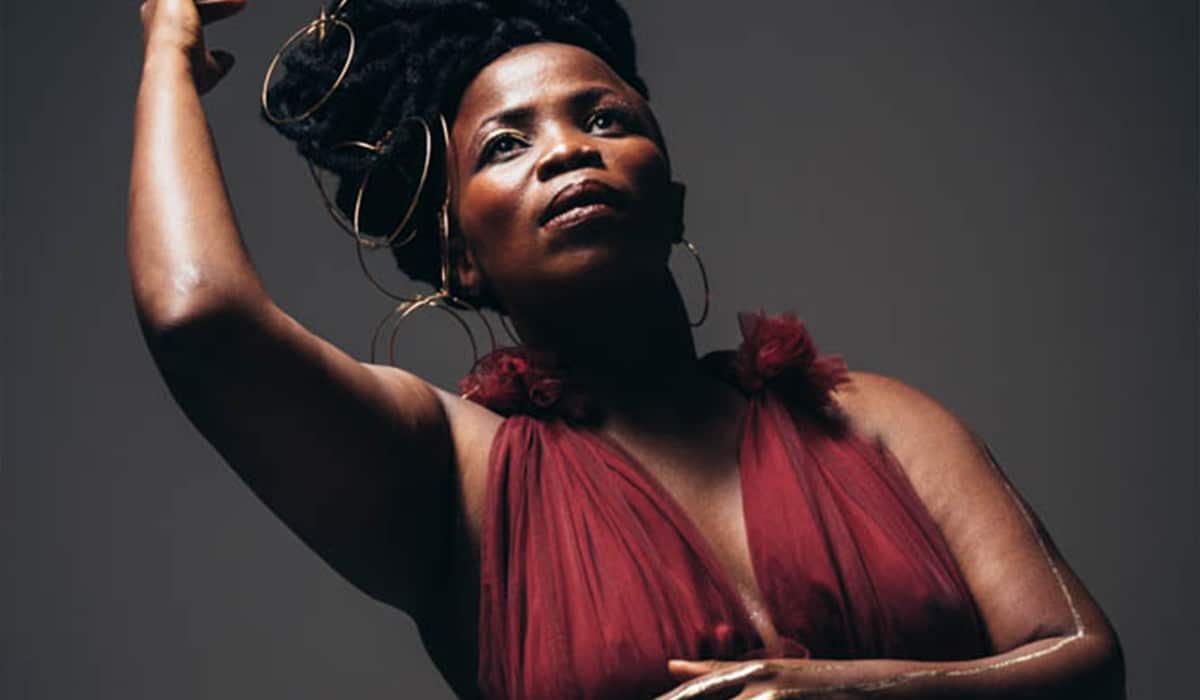
Zolani has many other plans for the collective, from recording music and performing widely to being a vehicle for change in women’s health. She believes that The Feminine Force shows the power of joining individual experiences and voices into a greater whole. “We as women and South Africans need to realise the potency of our individual voices and collective voice.
Any kind of collective action is powerful – movement changes things, whether you’re singing in a church or a toyi-toyi. We want to create that electricity, that intoxicating feeling of what might happen when we put our voices together. My hope is that it has a knock-on effect and acts as a light. I look forward to seeing what happens when we just do our joy.”
Words by: Christi Nortier
Photography: Gary Van Wyk

